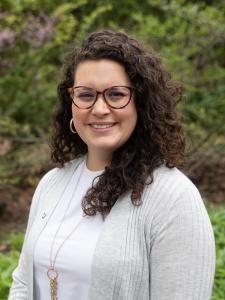Needs Assessment Training
Wednesday, June 26, 2024
Wells Conference Center
University of Maine Campus, Orono, Maine
Cost: Free (Lunch included)

Associate Professor
Ohio State University
Department of Agricultural Communication, Education, and Leadership
Dr. Mary Rodriguez from Ohio State University Extension will join us for a range of topics including: why needs assessments are important, how to involve vulnerable groups in assessment of needs, how to refine existing surveys or data collection instruments, and how needs assessments can be instrumental for social change. Dr. Rodriguez is an associate professor in Community Leadership and works in developing nations and with New American populations stateside.
Please register by Friday, June 14.
Agenda – Wednesday, June 26, 2024
9:30–10:30 a.m.: Why are needs assessments important and when to do them
10:30–10:45 a.m.: Break
10:45–11:45 a.m.: Involving vulnerable groups special considerations for needs assessments
11:45 a.m.–12:30 p.m.: Lunch
12:30–1:45 p.m.: Refining existing Instruments
1:45–2:00 p.m.: Break
2:00–2:45 p.m.: Needs assessment for social change
For questions or to request a reasonable accommodation, please contact Leslie Forstadt at leslie.forstadt@maine.edu.
In complying with the letter and spirit of applicable laws and pursuing its own goals of diversity, the University of Maine System does not discriminate on the grounds of race, color, religion, sex, sexual orientation, transgender status, gender, gender identity or expression, ethnicity, national origin, citizenship status, familial status, ancestry, age, disability physical or mental, genetic information, or veterans or military status in employment, education, and all other programs and activities. The University provides reasonable accommodations to qualified individuals with disabilities upon request. The following person has been designated to handle inquiries regarding non-discrimination policies: Director of Equal Opportunity, 5713 Chadbourne Hall, Room 412, University of Maine, Orono, ME 04469-5713, 207.581.1226, TTY 711 (Maine Relay System).
Territorial Acknowledgement
University of Maine Cooperative Extension, recognizes that we are located around the state in the homeland of Wabanaki people, where issues of water and territorial rights, and encroachment upon sacred sites are ongoing. We recognize that Wabanaki (Maliseet, Micmac, Passamaquoddy, and Penobscot) Tribal Nations are distinct, sovereign, legal, and political entities with their own powers of self–governance, and self–determination. We respect the Wabanaki People as the original stewards of this land. We thank them for their strength and resilience in caring for this land for hundreds of years. We recognize that we have a responsibility to continue working to change the systems that continue to allow injustice and inequality to exist. We are committed to listening, learning, and building relationships while serving as stewards to this land.
